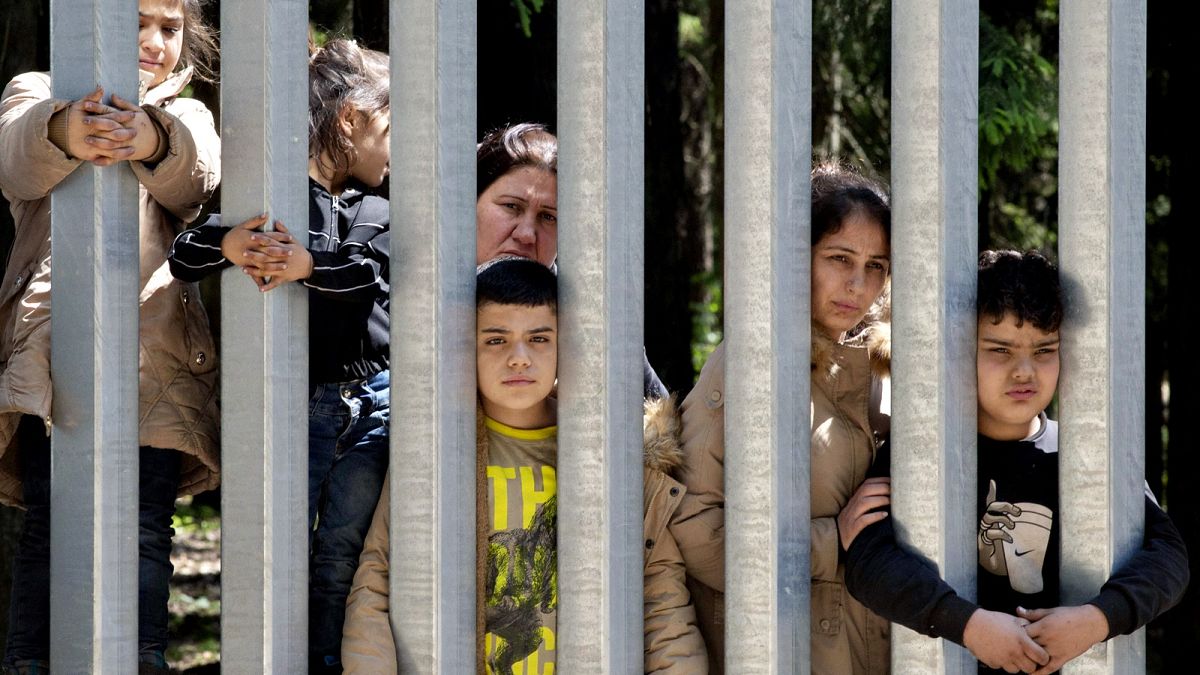Europe
EU borders saw over 120,000 migrant pushbacks in 2024, says NGO report

The Alarming Rise of Pushbacks in Europe: AHumanitarian Crisis
Introduction: The Rise of Pushbacks in Europe
In recent years, Europe has witnessed a disturbing surge in pushbacks, a practice where migrants are forcibly expelled from a country’s borders without the opportunity to seek asylum. This trend, highlighted in a recent report, reveals a staggering increase in such incidents, with over 120,000 cases documented in 2024 alone. Pushbacks violate fundamental human rights, as they deny asylum seekers their legal right to have their protection claims assessed. The report sheds light on a practice that has become systemic, raising critical questions about Europe’s commitment to human rights and international law.
The Alarming Numbers and Key Players
The data paints a grim picture, with Bulgaria leading the pushback statistics, accounting for over 52,500 cases, primarily directed towards Turkey. Following closely are Greece, Poland, Hungary, Latvia, Croatia, and Lithuania. Notably, these numbers exclude incidents between EU member states, indicating a targeted approach against non-EU countries. The methods employed are often violent, involving physical force, abandonment at sea, or leaving individuals vulnerable to harsh conditions. Frontex, the EU’s border agency, has been criticized for its limited oversight in areas where pushbacks occur, undermining its role in protecting fundamental rights.
The Role of EU Institutions and International Law
The European Union’s response to these practices has been met with criticism. While institutions like the European Commission have provided financial aid to countries such as Lebanon to manage migration, critics argue this support indirectly condones pushbacks. The European Court of Human Rights has intervened, finding Greece guilty of systematic pushbacks and initiating cases against Poland, Latvia, and Lithuania. This legal scrutiny highlights the failure of EU member states to uphold international refugee laws, indicating a systemic neglect of human rights obligations.
Pushbacks Beyond the EU Borders
The report extends its scope beyond EU borders, highlighting the role of countries like Libya and Lebanon. These nations, with significant EU support, have intercepted migrants, often under the guise of collaboration in migration management. Italy and Cyprus have been implicated in facilitating these actions, raising concerns about the outsourcing of pushbacks. The involvement of these countries underscores the complex geopolitical dynamics at play, where migration control is prioritized over human rights.
The Geopolitical Dimension and Migration Instrumentalisation
Belarus has been accused by the EU of orchestrating a migration crisis, allegedly luring migrants to its borders to destabilize neighboring countries. In response, Poland has introduced legislation to suspend asylum rights temporarily, a move initially criticized but later supported by the European Commission. This approach reflects a broader trend of securitizing migration, where migrants are viewed as threats rather than individuals deserving protection. NGOs have warned against this perspective, emphasizing that migrants, whether exploited in geopolitical strategies or arriving independently, have inherent rights.
Consequences for Migrants and Future Outlook
The consequences of pushbacks are dire, with reports of violence, disappearances, and deaths. Migrants face immense risks, from dangerous journeys to exploitation, with little recourse to justice. The normalization of pushbacks erodes the EU’s moral high ground on human rights, setting a concerning precedent. As legal battles and public outcry continue, the EU must confront its migration policies’ ethical implications. The report serves as a call to action, urging a return to principles of justice and humanity in addressing migration challenges.